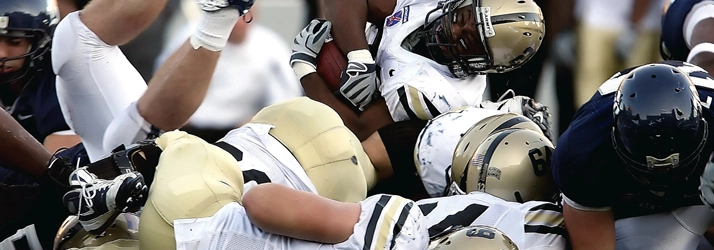Unlocking the Potential: Neurofeedback Therapy for Traumatic Brain Injuries and Concussions In Duluth GA

Traumatic Brain Injuries (TBIs) and concussions are more than just physical injuries; they can significantly impact cognitive functions, mental health, and overall well-being. As a Neurofeedback Therapy Practitioner and chiropractor in Duluth GA, I have witnessed the transformative power of neurofeedback therapy in helping individuals recover from these challenges. In this article, we will explore the world of neurofeedback therapy, its role in alleviating the symptoms of TBIs and concussions, and the fascinating concept of neuroplasticity.
Understanding Neurofeedback Therapy: A Brief Overview in Duluth GA
Neurofeedback therapy is a sophisticated form of biofeedback that focuses on regulating brain activity. It involves real-time monitoring of brain waves through Electroencephalography (EEG) sensors, providing individuals with visual or auditory feedback. This feedback allows the brain to learn self-regulation, promoting healthier and more balanced neural activity.
Neurofeedback and Traumatic Brain Injuries: A Powerful Alliance
Individuals who have experienced TBIs often face a myriad of challenges, from cognitive impairments to emotional difficulties. Neurofeedback therapy emerges as a ray of encouragement in this scenario. Through targeted training sessions, neurofeedback helps the brain reorganize itself, promoting healing and recovery.
The Elite Athlete Connection: Champions Embrace Neurofeedback
Neurofeedback therapy has gained popularity among elite athletes seeking to enhance their performance and recover from injuries, including concussions. The United States Olympic Training Center, as well as organizations such as the US Special Forces and Navy Seals training and the NASA Astronaut Training Center, incorporate neurofeedback into their training regimens.
Benefits for Elite Athletes Recovering from Concussions and TBIs
For elite athletes who have endured multiple concussions or TBIs, neurofeedback therapy offers a unique set of benefits:
- Enhanced Cognitive Function: Neurofeedback helps restore cognitive functions such as memory, attention, and executive function, crucial for athletes who rely on quick decision-making, reaction speed, and strategic thinking.
- Emotional Resilience: Concussions can take a toll on mental health, leading to anxious thoughts and depressed moods. Neurofeedback assists in regulating emotions, fostering emotional resilience for athletes facing the psychological aftermath of injuries.
- Improved Sleep Patterns: Quality sleep is essential for recovery. Neurofeedback has shown promising results in optimizing sleep patterns, ensuring athletes get the rest they need for optimal performance.
- Reduced Anxious Thoughts and Stress: Neurofeedback training can alleviate symptoms of anxious thoughts and stress, promoting a calm and focused mindset essential for athletic success.
Neuroplasticity: The Key to Adaptive Learning
One of the underlying principles of neurofeedback therapy is neuroplasticity—the brain's ability to reorganize itself by forming new neural connections. In the context of TBIs and concussions, neuroplasticity plays a pivotal role in helping the brain adapt and respond more efficiently to new information.
As an athlete engages in neurofeedback sessions, the brain learns to reroute neural pathways, compensating for damaged areas. This adaptive learning process contributes to improved cognitive and motor functions, allowing athletes to regain their competitive edge.
Closing Thoughts: Empowering Recovery through Neurofeedback
In conclusion, neurofeedback therapy stands as a beacon of hope for individuals, especially elite athletes, grappling with the aftermath of traumatic brain injuries and concussions. As a Neurofeedback Therapy Practitioner, I have seen the positive impact of neurofeedback on my patients, and it's truly inspiring.
By embracing the concept of neuroplasticity, neurofeedback opens doors to recovery, helping the brain rediscover its resilience and adaptability. As we continue to uncover the potential of neurofeedback therapy, the journey toward healing and enhanced performance becomes a shared victory.
If you or a loved one is facing the challenges of a traumatic brain injury or concussion, consider exploring the transformative benefits of neurofeedback therapy. Together, we can unlock the potential within and embark on a journey of recovery and renewed vitality.


